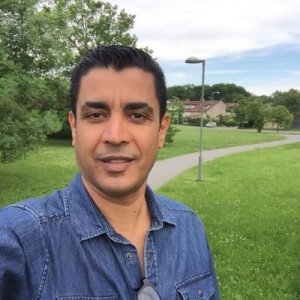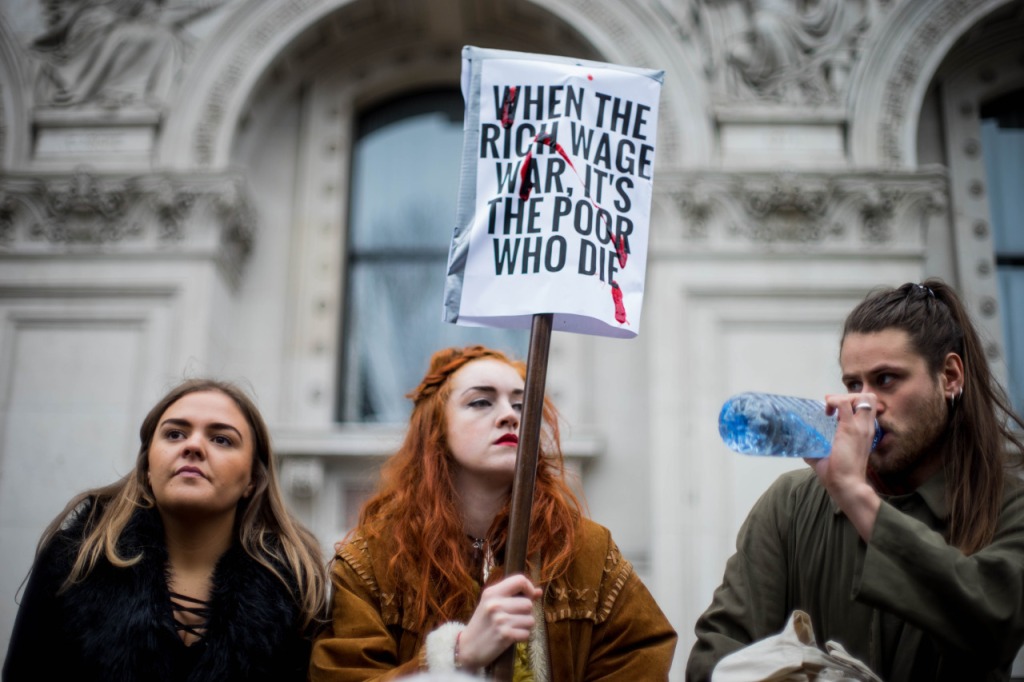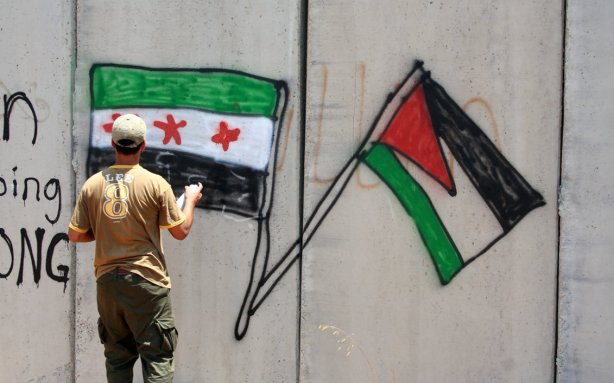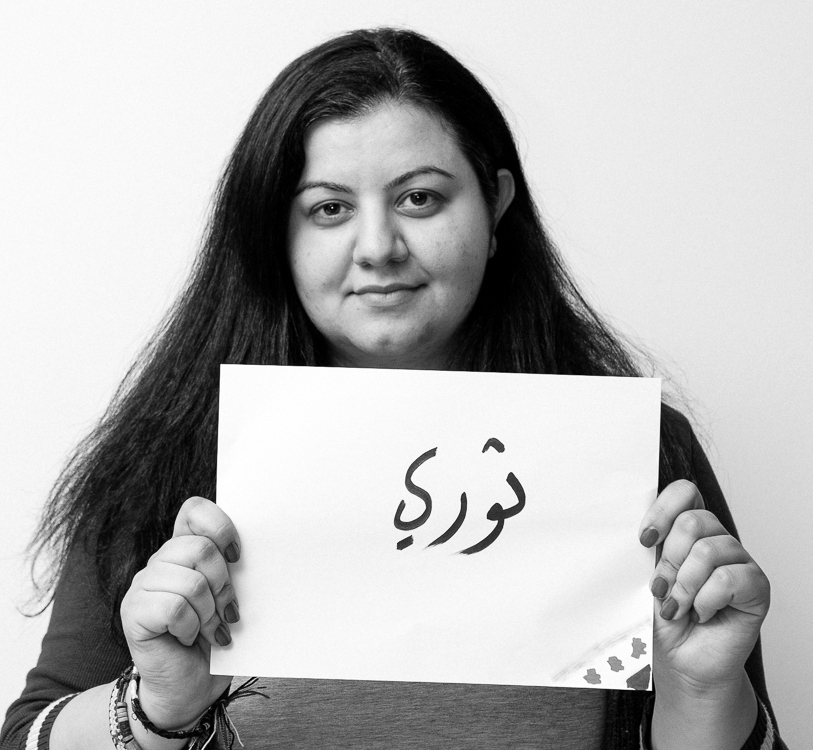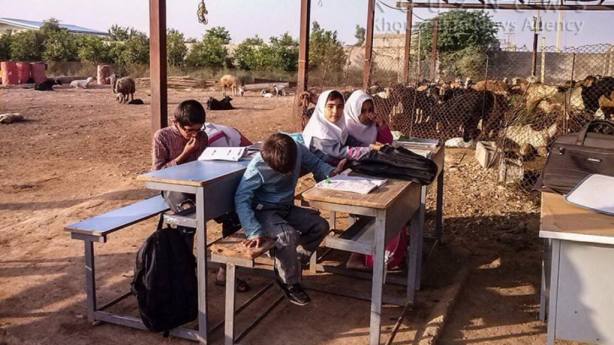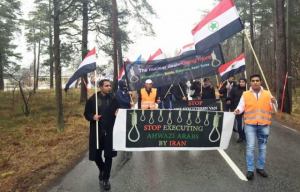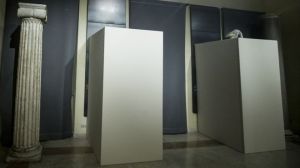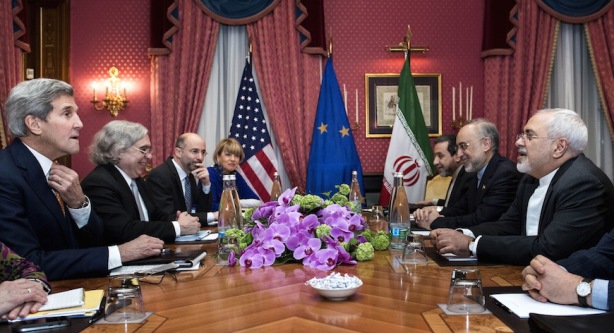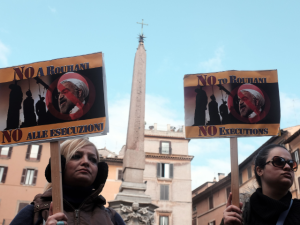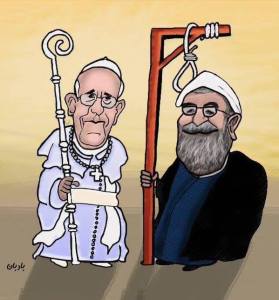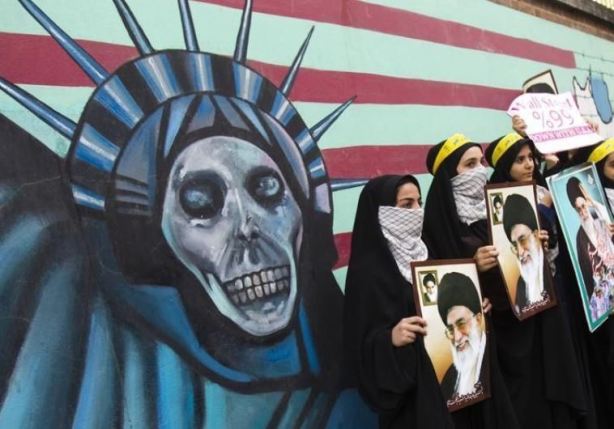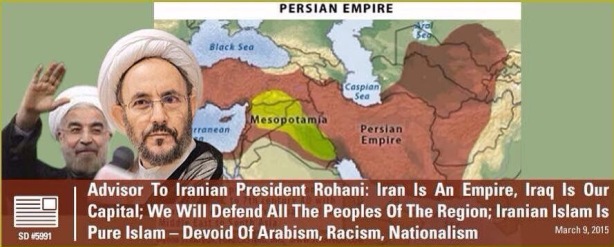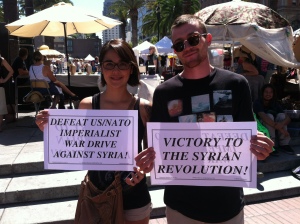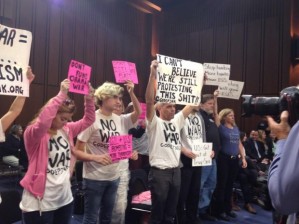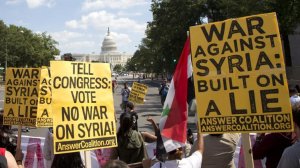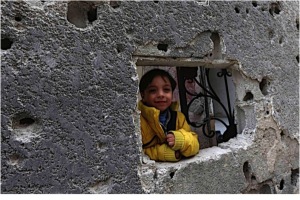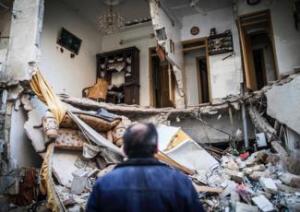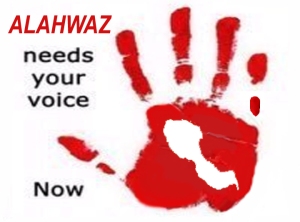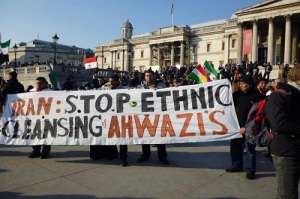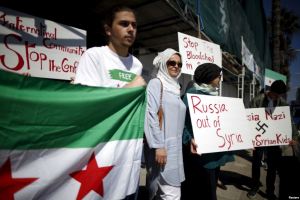 Ci auguriamo che vi unirete a noi nel sostenere questo appello. Se è così, scriveteci il vostro nome così come vorreste che appaia nella versione pubblicata insieme a una frase breve (10 parole o anche meno) che vi identifichi (ad esempio professione, attivista, blogger, ecc), compreso il vostro Paese di residenza. Si prega di utilizzare questo indirizzo e-mail per contattarci: magpie68@outlook.com
Ci auguriamo che vi unirete a noi nel sostenere questo appello. Se è così, scriveteci il vostro nome così come vorreste che appaia nella versione pubblicata insieme a una frase breve (10 parole o anche meno) che vi identifichi (ad esempio professione, attivista, blogger, ecc), compreso il vostro Paese di residenza. Si prega di utilizzare questo indirizzo e-mail per contattarci: magpie68@outlook.com
“Giù le mani dalla Siria” vale anche per la Russia.
Come persone e gruppi provenienti da molti Paesi, uniti da un comune impegno per la pace, la giustizia ed i diritti umani, condanniamo l’offensiva militare russa in Siria (successiva escalation) iniziata il 30 settembre 2015.
Mentre il governo russo ha dichiarato che queste operazioni sono dirette contro lo Stato Islamico (ISIS), la maggior parte degli attacchi si sono verificati in aree con nessuna presenza dell’ISIS. L’obiettivo dell’offensiva militare russa sembrano essere le comunità civili e militari dell’opposizione nella parte a nord della regione di Homs, centro permanente di resistenza al regime di Assad.
Le vittime dell’aggressione russa il 30 settembre sono state prevalentemente civili, tra cui molti bambini. Le condizioni umanitarie erano già disperate nella zona prima che la Russia lanciasse la sua offensiva aerea, perché la zona era da tempo sotto assedio del regime per la sua resistenza.
Il regime di Assad ha provocato il caos in tutta la Siria. E’ responsabile di avere innescato la guerra civile con la sua politica di sparare contro i manifestanti che chiedevano democrazia. Il regime ha ucciso oltre un quarto di milione di siriani, ha costretto metà della popolazione ad abbandonare le loro case e ha creato milioni di profughi. Nel corso di questa operazione, ha perso il controllo di metà del Paese. Anche se la pace non potrà mai essere ripristinata dal regime che l’ha distrutto, sembrerebbe che la Russia ora utilizzi direttamente la sua potenza militare per puntellare ulteriormente un regime che, senza il sostegno straniero, sarebbe crollato anni fa. Questa operazione dalle forze russe può solo prolungare l’agonia del popolo siriano, aumentare il flusso di rifugiati e rafforzare forze estremiste come ISIS.
Le dichiarazioni russe circa la legalità dell’escalation militare non sono più veritiere di quelle usate dagli Stati Uniti per giustificare la sua guerra contro il Vietnam. Quando il governo che invita un Paese straniero a intervenire è illegittimo, lo è anche l’invito. Anche gli Stati Uniti hanno responsabilità per la catastrofe, come tutti gli attori regionali e internazionali che hanno ignorato le aspirazioni ed i sacrifici del popolo siriano in ogni loro tentativo di risolvere la crisi, sostituendoli con i propri bisogni strategici e ambizioni.
Noi condanniamo in modo inequivocabile sia le brutali azioni repressive del regime di Assad che l’intervento militare russo volto a prolungarne l’esistenza. Se la Russia vuole una transizione politica negoziata in Siria, deve fermare la sua assistenza alla brutalità e agli attacchi indiscriminati del regime siriano contro obiettivi civili e deve smettere di incoraggiare il rifiuto persistente del regime di Assad di impegnarsi in ogni serio processo di pace. Gli attacchi contro le popolazioni civili sono in violazione del diritto internazionale. Ci appelliamo alla comunità internazionale, ai governi nazionali e alle Nazioni Unite affinché assicurino il rispetto della Risoluzione del Consiglio di Sicurezza numero 2139, di cui la Russia è parte, che prevede che “Tutte le parti cessino immediatamente tutti gli attacchi contro i civili, così come l’impiego indiscriminato di armi in aree popolate.” Chiediamo a tutti coloro che si occupano di pace internazionale e di difesa dei diritti umani ad unirsi a noi nel condannare le azioni di ostentata arroganza della Russia con tutti i mezzi a vostra disposizione – lobbying dei vostri rappresentanti, manifestazioni pubbliche, petizioni pubbliche e le altre forme di protesta.
FIRMATO:
Mike Gapes, Labour and Co-operative Member of Parliament for Ilford South, UK
Rt. Hon Sir Gerald Kaufman, MP, UK
Thomas Pierret, (Lecturer, University of Edinburgh, UK)
Rupert Read (Reader in Philosophy, University of East Anglia; Chair of Green House Think Tank, UK)
Peter Tatchell (Director, Peter Tatchell Foundation)
Yassin al Haj Saleh (Syrian Writer Living in Exile, Istanbul)
Abdulaziz Almashi (Syria Solidarity Movement, UK)
Haytham Alhamwi (Managing Director, Rethink Rebuild Society, Manchester Syrian Community, UK)
The Syrian Community of the South West UK
Hussam Ayloush (National Chair, Syrian American Council)
Faisal Alazem, Director, Syrian Canadian Council
Abdulrazzak Tammo (Leadership Consultant, Kurdish Future Movement, Syria/UK)
Planet Syria (Organization, UK)
Laila Alodaat (Lawyer, UK)
Juan Cole (Professor of History, University of Michigan & Blogger, Informed Comment, USA)
Jean-Pierre Filiu (Professor, Sciences Po, Paris School of International Affairs)
Sune Haugbølle (Department of Society and Globalisation, Roskilde University, Denmark)
Nader Hashemi (Director, Center for Middle East Studies, University of Denver, USA)
Steven Heydemann (Professor of Middle East Studies, Smith College, USA)
Rana Issa (University of Oslo, Norway)
Mohja Kahf (Professor of Comparative Literature & Middle Eastern Studies, University of Arkansas & Member of the Syrian Nonviolence Movement)
Vinay Lal (Professor of History, University of California, Los Angeles, USA)
Ziad Majed (Assistant Professor of International and Comparative Politics, The American University of Paris, France)
Danny Postel (Center for Middle East Studies, University of Denver, USA)
Muhammad Idrees Ahmad (University of Stirling, Scotland)
Luke Cooper (Lecturer in Politics, Anglia Ruskin University, UK)
Juliette Harkin (Doctoral Student, University of East Anglia, UK)
Brian Slocock (Senior Lecturer in Political Science, University of Paisley, Retired, UK)
Mary Rizzo (Syria Solidarity Activist, Blogger at wewritewhatwelike.com, Italy)
Peter Clifford (Middle East Blogger, UK)
Saskia Sassen (Committee on Global Thought, Columbia University, USA)
Saleh, Syrian, network engineer, KSA
Qusai Zakarya (Syrian Activist)
Lilia Marsali,. blogger and activist, Member, Algerian Congress for Democratic Change,France
Bill Fletcher, Jr. (Writer/Activist, Former President, TransAfrica Forum)
Gail Daneker (Friends for a NonViolent World, Minnesota, USA)
Clay Claiborne (Linux Beach Productions, Venice, California, USA)
Terry Burke (Minnesota Committee in Solidarity with the People of Syria, USA)
Afra Jalabi (Syrian Writer & Vice-Chair, The Day After Association)
Andrei Codrescu (Poet, Professor Emeritus, Louisiana State University, USA)
Stephen R. Shalom (Editorial Board, New Politics, USA)
James Sadri (The Syria Campaign, UK)
Robin Yassin-Kassab (Writer, Scotland)
Leila Al Shami (Activist and Writer, Jordan)
Rafif Jouejati (Director of FREE-Syria, the Foundation to Restore Equality and Education in Syria & English-language spokeswoman for the Local Coordination Committees in Syria, USA)
Nicolas Hénin (Journalist, Author, ex-ISIS hostage)
Leila Vignal (Fellow, Refugee Studies Centre, Department of International Development, Oxford University, UK)
Paul Woodward (War in Context, USA)
Ella Wind (New York University and MENA Solidarity Network, New York)
Roxanne Abbas (Activist, Minnesota, USA)
Ian Keith (Public School Teacher, Minnesota, USA)
Andrew Berman (Veterans for Peace, USA)
Mujeeb R. Khan (Department of Political Science, University of California Berkeley)
Şener Aktürk (Department of International Relations, Koç University, Turkey)
Omar Qureshi (Teacher, New York)
Michael Karadjis (Teacher, Sydney, Australia)
Fazal Khan (Associate Professor, University of Georgia School of Law, USA)
Kareen El Beyrouty (Economist and Member, Syria Solidarity Movement, UK)
Mark Boothroyd (Syria Solidarity Movement, UK)
Graham Campbell (RISE Glasgow East and Glasgow TUC Unite/ Scottish Trades Union Congress Delegate, UK)
Clara Connolly (Immigration and Human Rights Lawyer, UK)
Soumya Datta (Assistant Professor, South Asian University, New Delhi, India)
Bronwen Griffiths (Activist, UK)
Adina Mutar (Journalist, Romania)
David L. Williams (Peregrine Forum of Wisconsin, USA)
Ed Potts (Socialist, UK)
Nina van Krimpen (Human Rights Activist, The Netherlands)
Alfonso Vázquez (Human Rights Activist, Spain)
Pete Klosterman (Retired Software Engineer, New York, USA)
Therese Rickman Bull (Human Rights Activist, USA)
David Turpin Jr. (Antiwar Committee in Solidarity with the Struggle for Self Determination, Northwest Indiana, USA)
Kelly Grotke (Fellow, Society for the Humanities, Cornell University, USA)
Stephen Hastings-King (Author, Ithaca, New York, USA)
Dr Ahmad Sadiddin, research fellow in development economics, Univ of Florence, Italy
Mazen Halabi (Activist, Minnesota, USA)
Barry Rubin (Independent Scientist, UK)
Subhi Hadidi (Writer, Syria/France)
Farouk Mardam Bey (Publisher, Paris, France)
Wael Khouli (Physician Executive, Member of Syrian American Medical Society, USA)
Mary Lynn Murphy (Grandmothers for Peace Delegate to the Minnesota Alliance of Peacemakers, USA)
Rihab Naheel (Committee in Solidarity with the People of Syria, Minnesota, USA)
Susan Ahmad (Syrian Human Rights Activist and Journalist, UK)
Adnan Almahameed (Syrian Citizen, Community Organizer, Canada)
Pierluigi Blasioli (Student, University of Pescara, Italy)
James Bloodworth (Journalist, Editor of Left Foot Forward, UK)
Samantha Falciatori (Humanitarian Volunteer and Solidarity Activist, Italy)
Terry Glavin (Author/Journalist/Columnist, Canada)
Nancy Lindisfarne (Anthropologist, Author, UK)
Grant Padgham (Solidarity Activist, UK)
Harry Shotton (Student and Campaigner, UK)
Kellie Strom (Artist and Children’s Author, UK)
Jonathan Neale (Writer, UK)
Bill Scheurer (Executive Director, On Earth Peace, New Windsor, Maryland, USA)
Kenan Rahmani (Syrian American Activist, Washington DC)
Harald Etzbach (Translator/Journalist, Germany)
Ken Hiebert (Activist, Ladysmtih, BC, Canada)
Andrew Pollack (MENA Solidarity Network-US, Brooklyn)
Richard Dawson (Concerned Citizen, Los Angeles, California)
Robin ‘Roblimo’ Miler (IT/Science Reporter and Editor, USA)
Louis Proyect (Writer, CounterPunch film co-editor, New York City)
John Wilborn (Veterans for Peace, Chapter 168, Louisville, Kentucky, USA)
Fouad Roueiha (Journalist and co-founder of Solidarity with Syrian People Committee, Rome, Italy)
Gerard Di Trolio (Editor, rankandfile.ca, Toronto, Ontario, Canada)
Thomas F Barton (Military Resistance Newsletter)
Ricardo Salabert (Political Activist, Portugal)
Manuel Barrera (Metropolitan State University, St. Paul, Minnesota, USA)
Jason Schulman (Editorial Board, New Politics, USA)
Edna Bonhomme (Doctoral Candidate, Princeton University, Brooklyn, New York, USA)
Associazione Rose di Damasco (Como, Italy)
Riccardo Bella (Activist for Syria and Palestine, Milano, Italy)
Veronica Bellintani (Student, Activist and Volunteer with Syrian Refugees, Italy)
Karama Napoli (Committee to Support the Arab People, Italy)
Fiore Haneen Sarti (Human Rights Activist, Italy)
Jane Kelly (Activist, UK)
Jamie Milne (Labour Friends of Ukraine, UK)
Lara Bartocci (Freethinker and Graphic Designer, Italy)
Enrico De Angelis (Media Analyst, Free Press Unlimited, Italy)
Comitato Permanente per la Rivoluzione Siriana, Italy
Luke Staunton (Syria Solidarity Movement, UK)
Joshka Wessels (Postdoctoral Researcher on Syria, Centre for Resolution of International Conflicts, University of Copenhagen, Denmark)
Carol Coren (Social Enterprise Entrepreneur, Oregon and Pennsylvania, USA)
Anthony Saidy (Author, Los Angeles, USA)
Ralph Apel (Engineer, Frankfurt am Main, Germany)
Linda Parsons (Supporter of the Syrian People’s Revolution, Salt Lake City, Utah, USA)
Ali Rahabi (Syrian Activist, Local Coordination Committees in Syria, Deir ez-Zor, Syria)
Zaher Sahloul (Physician, President of the Syrian American Medical Society, USA)
Mohamad Khouli (Activist, Minneapolis, Minnesota, USA)
Jennifer Kaiser (Researcher, Turkey)
Polly Kellogg (Retired Associate Professor, St. Cloud State University, Minnesota, USA)
Basel Watfa (Pharmacist & Translator, Syrian refugee camp, Kusel, Germany)
Luna Watfa (Freelance Journalist/Photographer, Syrian refugee camp, Kusel, Germany)
Seyla Benhabib (Professor of Political Science and Philosophy, Yale University, USA)
Annalisa Roveroni (CIVIC Cooperativa Sociale, Italy)
Enzio Zuffo (Istituto Sviluppo Olistico, Italy)
Fred Mecklenburg (News & Letters, Chicago, USA)
Ron Aminzade (Professor of Sociology, University of Minnesota, USA)
MJ Maynes (Department of History, University of Minnesota, USA)
Meredith Tax (Writer & Chair of the Centre for Secular Space, New York, USA)
Deidre A. Kellogg Ketroser (Human Rights Activist, Refugee Advocate/Advisor, Minneapolis, USA)
Originale in inglese: http://www.syriauk.org/p/hands-off-syria-applies-to-russia-tooas.html
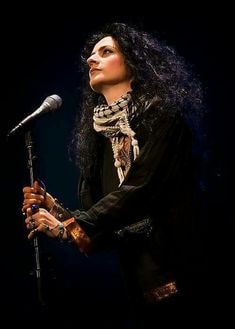
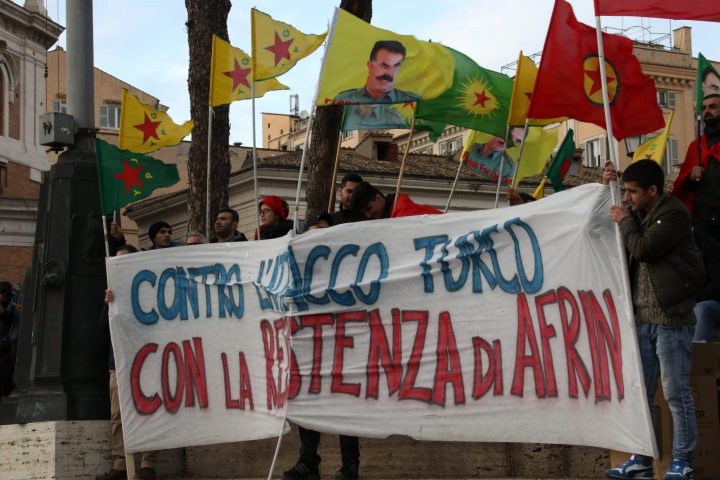
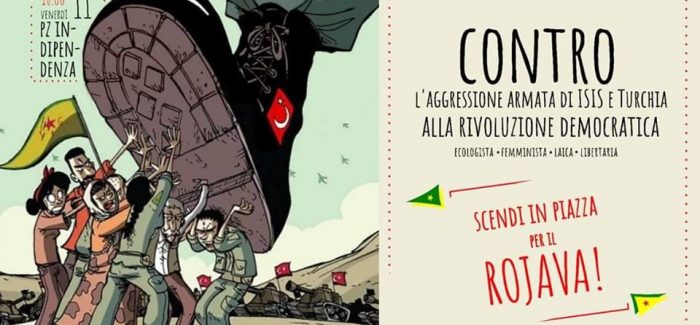
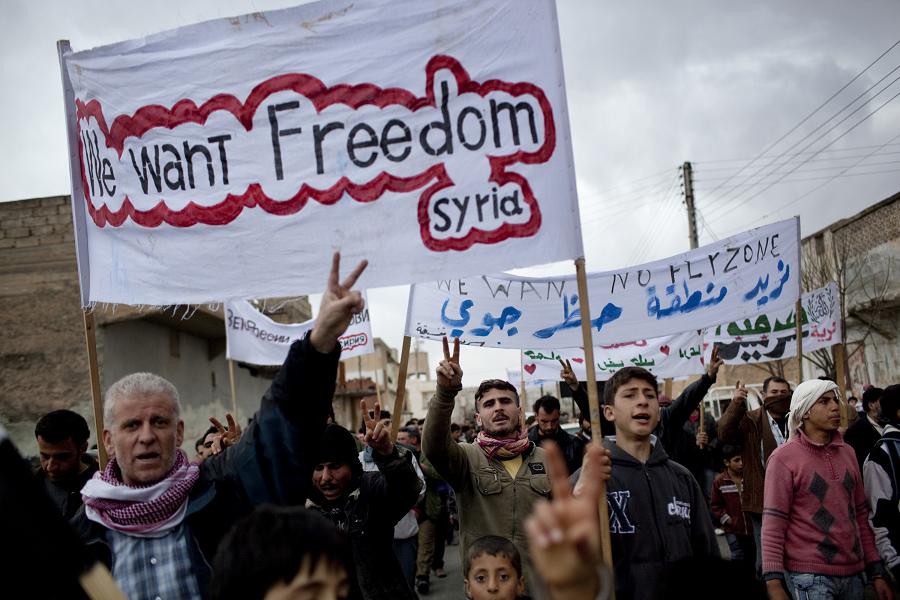
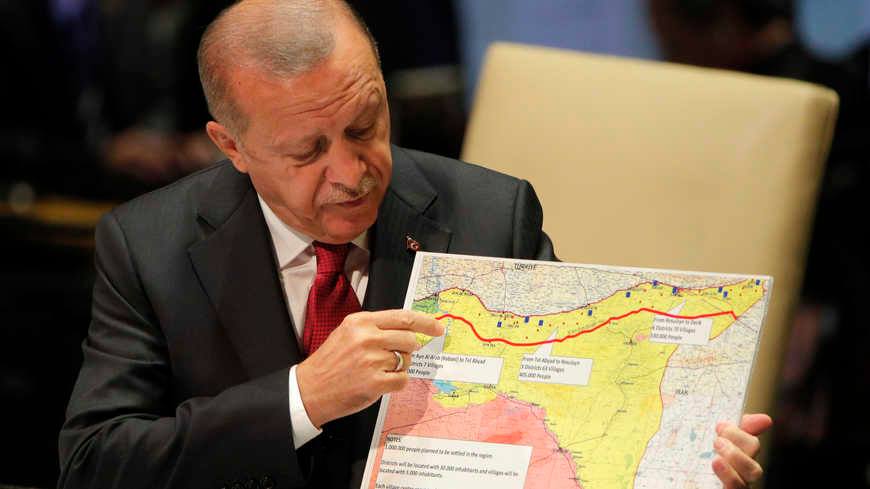
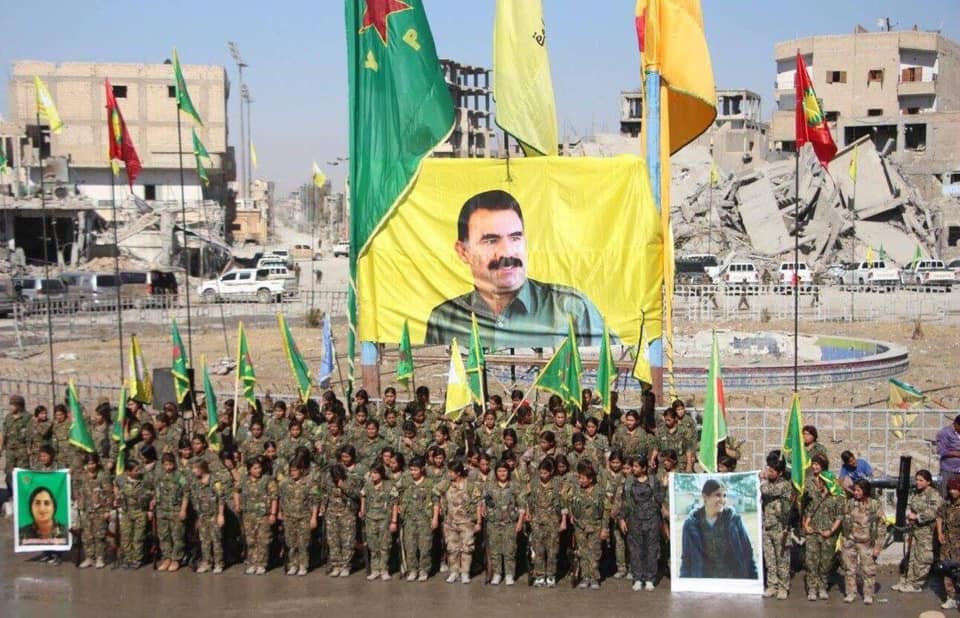
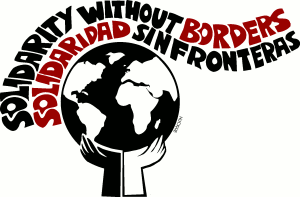 April 2, 2019
April 2, 2019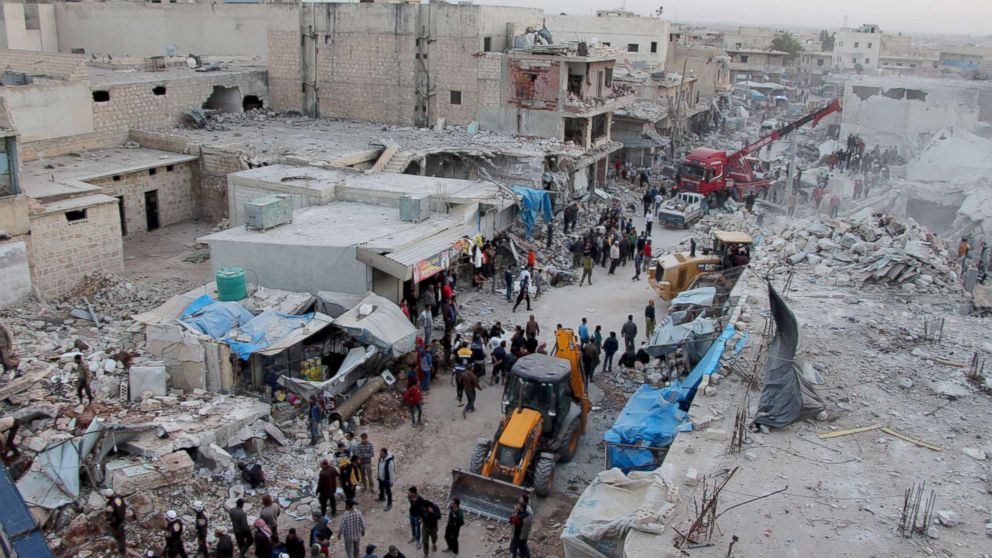
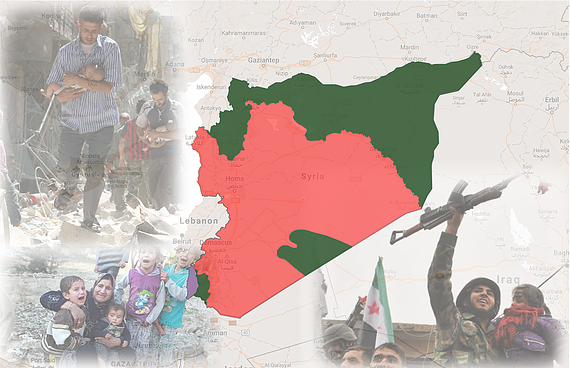
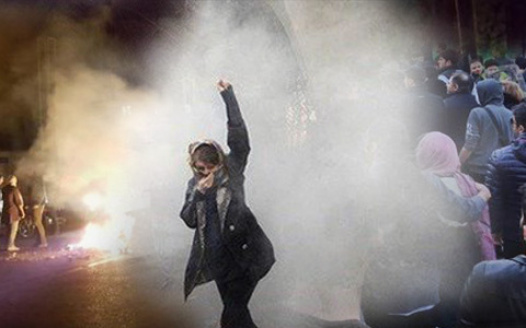
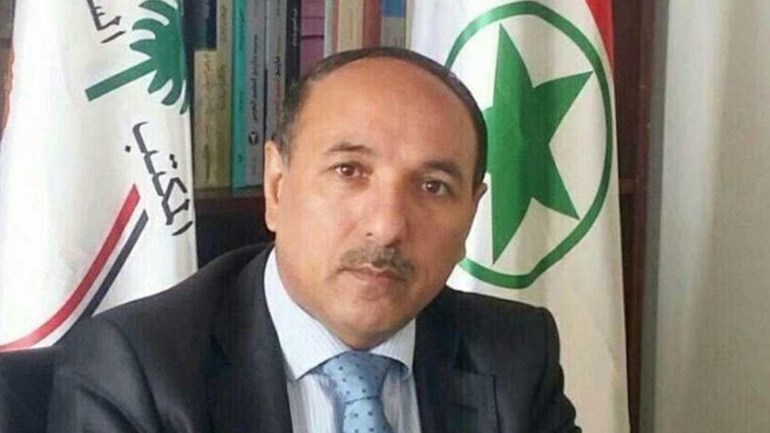
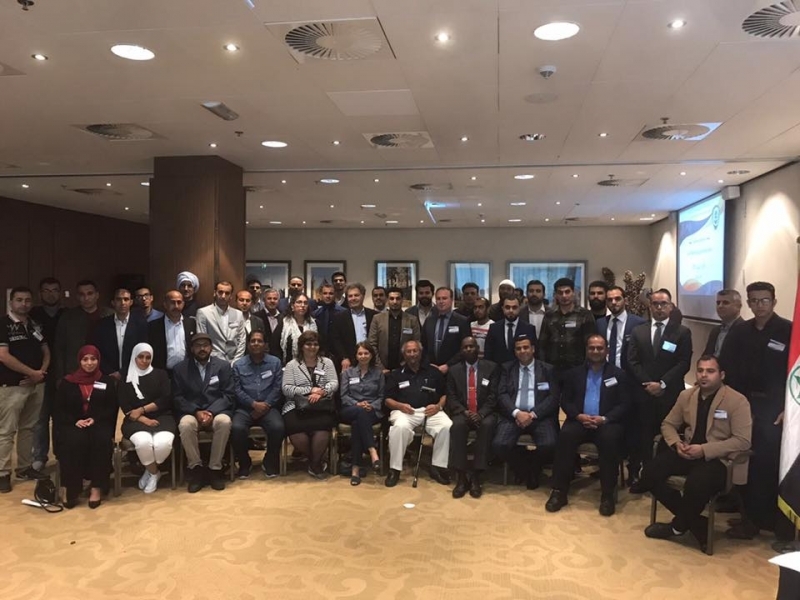 Ahwazna
Ahwazna